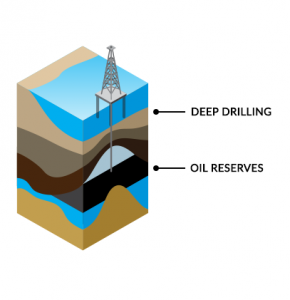All Categories
Featured
Table of Contents
Geophysical Survey Techniques And Methods in Butler Oz 2021

Other possible geophysicist majors that aren't geophysics or geoscience consist of: Climatic sciences and meteorology Chemical and physical oceanography Earth science Environmental science Hydrology and water resources science Materials science By earning any geophysicist degree, and by taking the necessary geology courses, you should certify for an entry-level position as a geoscientist or geophysicist.
Ultimately, students must discover: a branch of geology that looks at the various aspects of minerals, consisting of chemical structure, internal crystal structure, and physical residential or commercial properties. the research study of rocks and the processes and conditions that form and change them with time. There are a few neighborhoods in this branch of geology, consisting of igneous, metamorphic, and sedimentary rocks.

This field analyzes structural rock features such as cleavage, faults, joints, and small folds. They must also discover the computer abilities essential to: examine information develop digital models and maps run geoscientists' software application Students should also make the most of all opportunities to get real-world experience. Ambitious geophysicists ought to anticipate to hang around learning: in the classroom in the field in laboratories Clearly, skills taught in the classroom are very crucial for striving geophysicists.
What Is Geophysics And What Do Geophysicists Do? in Tuart Hill Australia 2021
For example, geoscientists invest a great deal of their time outside when working in the field, so they need to have "outside abilities" like outdoor camping and running boats, airplane, and other vehicles. Since they invest a lot time in remote locations, it's essential that geophysicists also have the physical stamina to bring required equipment on their walkings to areas of study.
The task provides: a high typical and top revenues a high rate of individual satisfaction amongst geophysicists low work tension positive job outlook More details on profits capacity and task outlook is detailed listed below. For students wanting to land an entry-level function as a geoscientist or geophysicist, it takes four years, or the time needed to finish a bachelor's degree in geophysics or a related discipline.
Some research positions in geophysics need doctoral degrees. Likewise, if you plan to teach at a college or university, you should earn a Ph - What Are Geological, Geochemical, in Success WA 2023. D. in geophysics or a related field. The time it takes to make a Ph. D. varies by institution and program, but it typically takes 4 to 6 years beyond the bachelor's degree.
Geophysical Survey In Archaeology in Quinns Rocks Australia 2022
In fact, many employers require candidates to have a bachelor's degree in geophysics or a carefully related discipline for all entry-level positions. And, sometimes, companies need a master's degree. As an outcome, there's no other way around the degree requirements for ending up being a geophysicist. Many companies will expect or require a practicing geologist to be licensed for positions beyond those at the entry level.
Currently, 31 states need licensing for geologists, although licensing is not always needed, especially for entry-level work. The states that do problem licenses use the Fundamentals of Geology Exam (FGE), which is administered through the National Association of State Boards of Geology (ASBOG). Now that you understand which degree for geophysicist tasks you require, you'll require to land a job, and it is necessary to learn just how much money you can make in this career.
According to BLS, the mean yearly wage for geoscientists is $93,580. According to BLS, certain markets use higher earnings for geoscientists, and in some cases, they offer higher-than-average revenues.
Geophysical Survey And Remote Sensing Techniques in Woodbridge WA 2023
Mining, quarrying, and oil and gas extraction provides over $32,000 more every year than the typical annual wage for this occupation. The federal government, too, provides over $10,000 more in revenues than the nationwide average for geoscientists. In addition to industry type, geographical area can considerably affect incomes for this occupation.

The top-paying states and their annual mean incomes, according to the BLS, consist of: Texas $166,720 Oklahoma $149,630 Pennsylvania $120,590 Hawaii $120,130 Colorado $107,260 These five top-paying states use much higher earnings than the average for this occupation. In fact, wages for geoscientists in Texas are over $73,000 greater than the nationwide average.
It must come as no surprise that most of these high-paying locations remain in Texas and Oklahoma, however some are found in California, Louisiana, and Colorado. The top 10 highest-paying metro locations for geoscientists are: Houston-The Woodlands-Sugar Land, Texas: $188,400 Tulsa, Oklahoma: $186,490 Midland, Texas: $167,040 Odessa, Texas: $147,080 Oklahoma City, Oklahoma: $145,350 Bakersfield, California: $130,080 Urban Honolulu, Hawaii: $124,470 New Orleans-Metairie, Louisiana: $121,030 Washington-Arlington-Alexandria, DC, VA, MD, WV: $120,180 Denver-Aurora-Lakewood, Colorado: $116,910 For some geoscientists and geophysicists, residing in a metro city is not as appealing as residing in a smaller sized neighborhood.
Latest Posts
Geophysical Surveys: Definition & Methods in Forrestdale Oz 2020
Geophysics in Spearwood Australia 2022
Geophysical Survey in Kinross Oz 2022